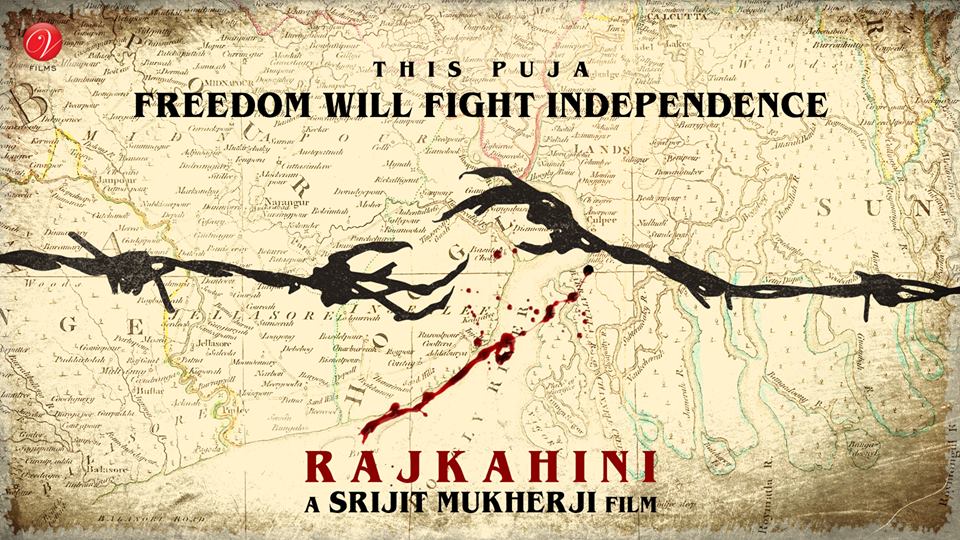Disclaimer: This is more of a rant consisting of my personal views about the movie. Not only regarding the movie, but also the various topics covered by it. Hence, this blog post shouldn’t be considered the kind of traditional ‘reviews’ that critics do, as the coverage of the writing is beyond the movie itself.
The thing with Srijit Mukherji movies is — each new one makes you think, “this is by far the most different one of the lot”. And, the man somehow manages to keep that feeling a constant with each new release of his.
Before going to the theatre, I anticipated very little about the movie — and that was a good thing. There are some deep things in his movies that just don’t surface clearly in the trailer. I don’t get enough thinking space to think about the movie before actually watching it. And I enjoy the unanticipated beauty on the screen without any pre-conceived notion about. That’s one of the perks of being a fan of unpredictability.
Now, enough of the ramblings. Take a look at the trailer to get a (very) basic idea about what the film might be like.
Rajkahini — why the name, how it’s significant etc. are stuff I’d NOT like to discuss and throw useless spoilers at people who seriously don’t need them. The movie takes place during the time India got independence and the consequences that it brought to millions of people living around the border between the countries India and Bangladesh.
This, however, is not just another “OMG, the partition thing was so bad. How pathetic. People suffered so much. Screw the British.” movie. And the tagline, “This Puja, Freedom Will Fight Independence”, kind of promises that.
Rajkahini is a story of defiance. Rajkahini is a story of emotions. Rajkahini is a story of love that has no place in this society. Rajkahini is a story of philosophy and self-realisation. And Rajkahini is exactly the kahini that your history books never told you in school.
Rajkahini looks at an event like the partition of India from a humane perspective. The financial, social, structural, and emotional damages that followed. The people uprooted, the bonds broken, the powers flattened.
In a way, the film mocks the false sense of patriotism (usually injected in people using popular mediums) that does more harm than good.
Rajkahini, like Nirbaak, like Jatiswar, makes you think. And this is one of the most enjoyable aspects of the movie to me. Many subtle dialogues, references, indications etc. leave a lasting impact on your mind. They make you think about a topic in a wholly different way. Things you maybe haven’t ever given a thought about.
I can recall one specific instance when I was left spellbound by a sublime bit of acting by Jaya Ahsan and Rudranil Ghosh. The realisation of Rubina was so simple yet thought provoking.
The film is, in many ways, a brave one. It felt very natural. It wasn’t created to please anyone, or soothe anyone’s eyes. It portrayed the reality mercilessly. It portrayed it beyond the “13 people killed, many more suspected injured” sentimentlessness. That’s partially why the sudden and unexpected lesbian scene seemed very natural in the context of the movie.
The film also takes a dig at the justification of curbing personal freedom for a misthought sense of “greater good”. It also touches on things like feminism, religious divisions, and the down in the dumps lives of prostitutes (which, by the way, hasn’t changed even now).
The cinematography and editing (which Srijit was a part of) are praiseworthy. Plain good work. The background score was top notch, as well. The use and intepretation of Tagore’s “Bharoto Bhagyo Bidhaata” at the end, was sublime.
The (huge) cast justified their respective roles. There’s no point talking about all of them individually as they all will just get the same response from me, which is praise.
The lack of unnecessary crowd-pleaser elements must be very satisfying to genuine movie lovers. Just like Nirbaak, Rajkahini isn’t purposefully made for everyone. But for those who can connect with the details and the emotions associated with the movie, it’ll indeed be a cinematic treat.
P.S. : The release date of this movie co-incidentally co-incided with my 18th birthday. ‘Freedom’. 🙂





